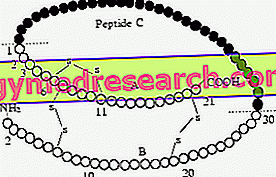
What is Renvela?
Renvela is a medicine that contains the active substance sevelamer carbonate. The medicine is available as white tablets (800 mg) and as a powder (1.6 g and 2.4 g) to prepare an oral suspension.
What is Renvela used for?
Renvela is used to control hyperphosphataemia (high levels of phosphate in the blood) in:
• adult patients on dialysis (blood purification technique). The medicine can be used in patients undergoing hemodialysis (with a blood filtration machine) or peritoneal dialysis (in which fluid is pumped into the abdomen and an inner membrane of the body filters the blood).
• Patients with chronic (long-term) kidney disease who are not on dialysis and have a serum phosphorus level (blood) equivalent to or greater than 1.78 mmol / l. Renvela must be used with other treatments, such as calcium supplements and vitamin D, to prevent the development of bone diseases.
The medicine can only be obtained with a prescription.
How is Renvela used?
The recommended starting dose of Renvela depends on the clinical needs and the level of phosphate in the blood and is between 2.4 and 4.8 grams per day. Renvela should be taken three times a day, with meals, and patients should follow the prescribed diet.
The dose of Renvela must be adapted every two to four weeks to reach an acceptable level of phosphate in the blood, which must then be kept under control regularly. The tablets should be taken whole and the oral suspension should be taken within 30 minutes of preparation.
How does Renvela work?
Patients with severe kidney disease are unable to eliminate phosphate from the body. This leads to hyperphosphatemia which, in the long run, can cause complications, such as heart disease. The active substance in Renvela, sevelamer carbonate, is a phosphate binder. When taken with meals, the sevelamer molecules contained in the sevelamer carbonate bind to the phosphate of food in the intestine, preventing its absorption into the body. This helps reduce phosphate levels in the blood.
Renvela is similar to another medicine, Renagel, available in the European Union since 2000. Renagel contains sevelamer as the hydrochloride salt instead of Renvela's carbonate.
How has Renvela been studied?
The effects of Renvela were first tested in experimental models before being studied in humans.
Two main studies compared Renvela with Renagel in 110 adults on dialysis. All patients
they had chronic kidney disease with hyperphosphataemia and had been on hemodialysis for at least three months. All had already undergone treatments with oral phosphate binding agents and most of the patients took vitamin D. The two studies were crossover studies: patients received either Renvela (tablets or powder) or Renagel first, and the treatments were then exchanged after four or eight weeks. The main measure of effectiveness was the average amount of phosphate in the blood during treatment.
A third main study involving 49 patients experienced Renvela in patients with hyperphosphataemia with a serum phosphorus level equal to or greater than 1.78 mmol / l and who were not on dialysis. Patients received Renvela for eight weeks. The main measure of effectiveness was the entity
of phosphate reduction in blood at the end of treatment.
What benefit has Renvela shown during the studies?
Renvela has shown an equivalent efficacy to that of Renagel in reducing phosphate in patients with chronic kidney disease who were on dialysis. In two studies, the average amount of phosphate in the blood during treatment with Renvela or Renagel was similar.
In the small study of non-dialysis patients taking Renvela, the average amount of phosphate in the blood was reduced by about a fifth, from 2.0 mmol / l to 1.6 mmol / l.
What is the risk associated with Renvela?
The most common side effects with Renvela (seen in more than 1 patient in 10) are nausea, vomiting, pain in the upper abdomen and constipation. For the full list of all side effects reported with Renvela, see the Package Leaflet.
Renvela should not be used in people who may be hypersensitive (allergic) to sevelamer carbonate or any of the other substances. Renvela must not be used in people with hypophosphataemia (low levels of phosphate in the blood) or with intestinal obstruction (blockage in the intestine).
Why has Renvela been approved?
The Committee for Medicinal Products for Human Use (CHMP) noted that Renvela's study in non-dialysis patients was too small to independently provide sufficient evidence to support the use of the medicine in these patients. However, the committee determined that the medicine can be used in patients not on dialysis because they had the same underlying disease as those on dialysis.
The CHMP therefore decided that Renvela's benefits are greater than its risks for the control of hyperphosphataemia in adult patients undergoing hemodialysis or peritoneal dialysis and in adult patients with chronic kidney disease who are not on dialysis and who have a phosphorus level in serum equal to or greater than 1.78 mmol / l. The committee recommended that Renvela be given marketing authorization.
What measures are being taken to ensure the safe use of Renvela?
The company that produces Renvela will guarantee the availability of information material in all the Member States for patients and doctors / health professionals. The program will include information on the risk and prevention of peritonitis (inflammation of the tissue covering the abdomen) in patients undergoing peritoneal dialysis, arteriovenous fistula (an abnormal passage between an artery and a vein) in patients undergoing hemodialysis, and of vitamin deficiency in patients with chronic kidney disease.
More information on Renvela:
On 10 June 2009, the European Commission granted Renélaa a marketing authorization valid for Genzyme Europe BV, valid throughout the European Union.
For the full EPAR version of Renvela, click here.
Last update of this summary: 04-2009.



